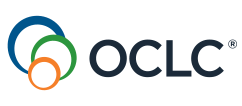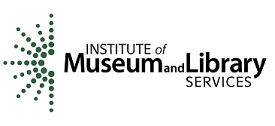WebJunction Launches First Courses in Series on Digital Collections Stewardship
WebJunction’s free course series will guide you through the lifecycle of digital stewardship from planning and gathering to saving and sharing digital collections—wherever your starting point is.
OCLC's WebJunction, in partnership with Washington State University’s Center for Digital Scholarship and Curation, has launched the first two in a series of free online courses developed for staff at small public libraries and tribal archives, libraries, museums on digital stewardship and community-centered curation of digital collections. These on-demand courses, adapted from the Tribal Digital Stewardship Cohort Program developed at Washington State University, are rolling out this month.
Digital Collections Stewardship Course Series
![]()
Creating and sharing digital collections is an important way that libraries can share and preserve unique local history, culture, stories, and artifacts. Digital collections offer an opportunity to represent a diversity of experiences and voices in your community that may be missing from your physical collection.
Planning, creating, managing, and preserving digital collections, however, can be resource-intensive work that requires technology, new skills, and an ongoing commitment to maintain them. Understanding the full lifecycle of digital stewardship is critical to successful digital collections.
This new course series, designed specifically with the needs of small cultural institutions in mind, will guide you through the lifecycle of digital stewardship. This lifecycle describes the entire ongoing range of tasks and activities necessary to successfully share digital collections. If you are new to digital collections, we encourage you to take these courses sequentially; if not, feel free to choose the courses that fit your needs.
Digital Collections Stewardship 1: Introduction
This course defines digital collections and introduces the digital stewardship lifecycle, a model that describes the tasks and activities related to creating, organizing, managing, preserving, and sharing digital collections. Here, you’ll begin exploring how you might shape your own digital stewardship work to meet your community needs and institutional goals.
Digital Collections Stewardship 2: Preparing
The second course in this series describes the importance of preparing for digital collections stewardship and identifies key steps to preparation. This course will lead you through defining your digital stewardship goals and identifying and/or creating the library policies you’ll need to guide the work. You’ll work through initial planning questions as you define a digital collection project and how you will accomplish it.
Update: All courses in the series are now available!

This training is designed to strengthen staff skills and knowledge of:
- Understanding the lifecycle of digital stewardship
- Creating policies and documentation to sustain and manage collections
- Collaborating with community members and partner organizations
- Gathering digital content through donation, partnerships, digitization, and creating new digital content
- Enhancing the value of collections with culturally inclusive and meaningful metadata
- Secure and sustainable long-term digital preservation
- Practicing ethical stewardship of culturally sensitive collections
- Providing appropriate access to collections based on community values and priorities
How can I learn more and stay up to date on these courses?
You can watch the recording of our April 26 webinar to learn more: Digital Collections at Your Library: Community, Culture, and Connection. You can also subscribe to our twice-monthly e-newsletter, Crossroads, for more details and to hear about the release of new courses in the series.
This project is made possible in part thanks to support from OCLC, Washington State University’s Center for Digital Scholarship and Curation, and the Institute of Museum and Library Services (project number RE-246364-OLS-20).
We are grateful to these additional organizations for their support of this project: the American Indian Library Association (AILA); the Association of Tribal Archives, Libraries, and Museums (ATALM); the Society of American Archivists – Native American Archives Section (SAA-NAAS); and the Tribal College Librarians Professional Development Institute (TCLI).
Project overview: oc.lc/digital-stewardship



